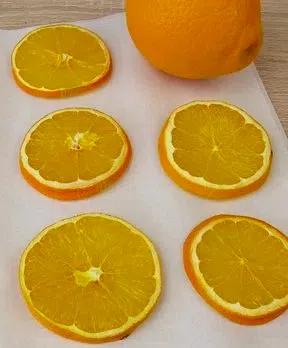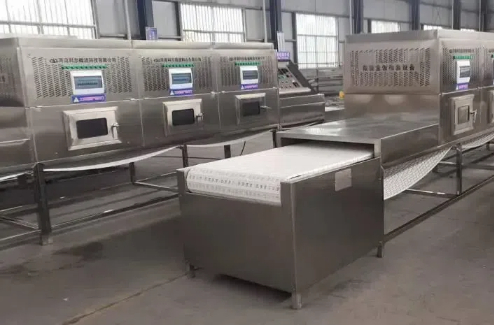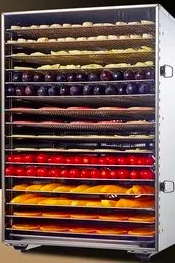
Content Menu
● Understanding Food Drying Machines
● How Heat Pump Dryers Work
● Benefits of Using Heat Pump Dryers for Food Processing
>> Energy Efficiency
>> Consistent Drying Quality
>> Preservation of Nutrients
>> Versatility
>> Reduced Risk of Contamination
>> Space-Saving Design
>> User-Friendly Operation
>> Low Maintenance Requirements
● Applications of Heat Pump Dryers in Food Processing
>> Fruit Drying
>> Vegetable Drying
>> Herb Drying
>> Meat Drying
● Conclusion
● Frequently Asked Questions
>> 1. What types of food can be dried using heat pump dryers?
>> 2. How does a heat pump dryer differ from a conventional dryer?
>> 3. What maintenance is required for heat pump dryers?
>> 4. Are heat pump dryers suitable for small businesses?
>> 5. How can I determine the right heat pump dryer for my needs?
In the world of food processing and preservation, drying is a crucial step that enhances the shelf life and quality of food products. As a leading manufacturer of food drying machines in China, we specialize in providing OEM services to international brands, wholesalers, and producers. While our focus is on food drying technology, the principles of efficiency and innovation can also be seen in other industries, such as laundry with stackable heat pump dryers. This article will explore the benefits of using food drying machines, particularly heat pump technology, and how they can revolutionize food preservation.

Understanding Food Drying Machines
Food drying machines are designed to remove moisture from food products, thereby inhibiting the growth of bacteria, yeast, and mold. This process not only extends the shelf life of food but also concentrates flavors and nutrients. There are various types of food drying machines, including convection dryers, freeze dryers, and heat pump dryers. Among these, heat pump dryers are gaining popularity due to their energy efficiency and superior drying capabilities.
How Heat Pump Dryers Work
Heat pump dryers operate on the principle of transferring heat from one place to another. They use a refrigeration cycle to extract moisture from food products while maintaining a controlled temperature. This method is particularly effective for drying sensitive foods, such as fruits, vegetables, and herbs, as it minimizes nutrient loss and preserves the food's natural color and flavor.
The process begins with the heat pump extracting heat from the surrounding air and transferring it to the drying chamber. Inside the chamber, the warm air circulates around the food, evaporating moisture. The moisture-laden air is then drawn back into the heat pump, where it is cooled, and the moisture is condensed and removed. This cycle continues until the food reaches the desired moisture content.
Benefits of Using Heat Pump Dryers for Food Processing
Energy Efficiency
One of the most significant advantages of heat pump dryers is their energy efficiency. They consume less energy compared to traditional drying methods, making them an environmentally friendly option. This is particularly important for businesses looking to reduce operational costs and carbon footprints. By utilizing heat pump technology, companies can achieve substantial savings on energy bills while contributing to sustainability efforts.
Consistent Drying Quality
Heat pump dryers provide uniform drying conditions, ensuring that all food products are dried evenly. This consistency is crucial for maintaining the quality and safety of food items, as uneven drying can lead to spoilage. With precise temperature control, heat pump dryers can adapt to different types of food, ensuring optimal drying conditions for each product.
Preservation of Nutrients
Unlike conventional drying methods that often expose food to high temperatures, heat pump dryers operate at lower temperatures. This gentle drying process helps preserve the nutritional value of food, making it a healthier option for consumers. Studies have shown that foods dried with heat pump technology retain more vitamins and minerals compared to those dried using traditional methods.
Versatility
Heat pump dryers can be used for a wide range of food products, including fruits, vegetables, meats, and herbs. This versatility makes them an ideal choice for food manufacturers looking to diversify their product offerings. For instance, a single heat pump dryer can be used to dry apples, carrots, and basil, allowing businesses to maximize their equipment investment.

Reduced Risk of Contamination
The closed-loop system of heat pump dryers minimizes the risk of contamination from external sources. This is particularly important in food processing, where hygiene and safety are paramount. By maintaining a controlled environment, heat pump dryers help ensure that the final product is safe for consumption.
Space-Saving Design
Many heat pump dryers are designed to be stackable, allowing businesses to maximize their production space. This feature is especially beneficial for small to medium-sized enterprises that may have limited floor space. By utilizing vertical space, companies can increase their drying capacity without the need for additional square footage.
User-Friendly Operation
Modern heat pump dryers come equipped with advanced control systems that allow users to monitor and adjust drying parameters easily. This user-friendly interface simplifies the drying process and reduces the likelihood of errors. Operators can set specific drying times and temperatures, ensuring that each batch of food is processed correctly.
Low Maintenance Requirements
Heat pump dryers are generally low maintenance, requiring only periodic cleaning and servicing. This ease of maintenance can save businesses time and money in the long run. Regular maintenance checks can help identify potential issues before they become significant problems, ensuring that the dryer operates efficiently.
Applications of Heat Pump Dryers in Food Processing
Heat pump dryers are used in various food processing applications, including:
Fruit Drying
Heat pump dryers are ideal for drying fruits such as apples, bananas, and berries. The gentle drying process helps retain the fruit's natural sweetness and color. Dried fruits can be used in snacks, cereals, and baked goods, providing a nutritious and flavorful ingredient.

Vegetable Drying
Vegetables like carrots, peas, and bell peppers can be effectively dried using heat pump technology. This method preserves the vegetables' nutrients and flavor, making them suitable for long-term storage. Dried vegetables can be rehydrated for soups, stews, and other dishes, offering convenience and versatility.
Herb Drying
Heat pump dryers are perfect for drying herbs, as they maintain the essential oils and flavors that are often lost in traditional drying methods. Dried herbs can be packaged for retail or used in food production, enhancing the flavor profile of various dishes.
Meat Drying
For producers of jerky and other dried meat products, heat pump dryers offer a reliable solution for achieving the desired texture and flavor while ensuring food safety. The controlled drying environment helps prevent the growth of harmful bacteria, making it a safe option for meat preservation.
Conclusion
In conclusion, heat pump dryers represent a significant advancement in food drying technology. Their energy efficiency, consistent drying quality, and ability to preserve nutrients make them an excellent choice for food manufacturers. As a Chinese food drying machine manufacturer, we are committed to providing high-quality heat pump dryers that meet the needs of our international clients. By investing in this innovative technology, businesses can enhance their product offerings and improve their operational efficiency.

Frequently Asked Questions
1. What types of food can be dried using heat pump dryers?
Heat pump dryers can be used for a variety of foods, including fruits, vegetables, meats, and herbs. Their versatility makes them suitable for different food processing applications.
2. How does a heat pump dryer differ from a conventional dryer?
Heat pump dryers operate at lower temperatures and use a closed-loop system, making them more energy-efficient and better at preserving nutrients compared to conventional dryers.
3. What maintenance is required for heat pump dryers?
Maintenance typically involves regular cleaning and occasional servicing to ensure optimal performance. Keeping the dryer clean helps maintain its efficiency and prolongs its lifespan.
4. Are heat pump dryers suitable for small businesses?
Yes, heat pump dryers are available in various sizes, including compact models that are ideal for small to medium-sized enterprises. Their stackable design also helps maximize space.
5. How can I determine the right heat pump dryer for my needs?
Consider factors such as the types of food you plan to dry, your production volume, and available space when selecting a heat pump dryer. Consulting with a manufacturer can also provide valuable insights into the best options for your specific requirements.













